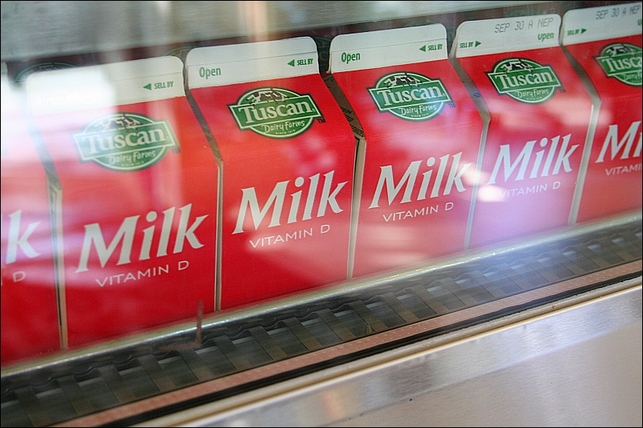That doesn't necessarily mean we should all run out and by vitamin D supplements, or spend more time in the sun, or consume more salmon, tuna, fortified whole milk, pork, eggs, beef liver, or ricotta cheese -- the foods identified by Good Housekeeping as great sources of D. (Why does butter-pecan ice cream never appear on such lists?) The jury is still apparently out on this question.
But could it hurt to buy a bottle of supplements?
Well, maybe. We all know about the dangers of getting too much sun, or eating too much of just about anything. Side effects of taking too much D include "weakness, fatigue, sleepiness, headache, loss of appetite, dry mouth, metallic taste, nausea, [and] vomiting" -- and unspecified worse side effects, if you're trying to correct a D deficiency, which is why you should only do this "under the supervision of a healthcare provider."
But the danger apparently occurs only when you're taking over 4,000 units of D a day, per WebMD; my bottle's gelcaps are only 400 units each. I suppose that means one a day isn't going to do much if you have a problem, and if you don't have a problem, what's the point in taking it?
Obviously the right way to do this is to get tested for D deficiency, and if you've got it, follow your doctor's instructions. Probably worth it, if it really reduces the risk of these sad diseases.
In the meantime, it's good to know that Vitamin D can also be helpful for everything from bone health to blood pressure, and may help prevent diseases from autoimmune disorders to cancer.
Hey, maybe D is the ticket to living forever!? But the jury is still out on that score, too; until you hear otherwise, there's only one sure way to eternal life, and it doesn't come in a bottle.

 RSS Feed
RSS Feed